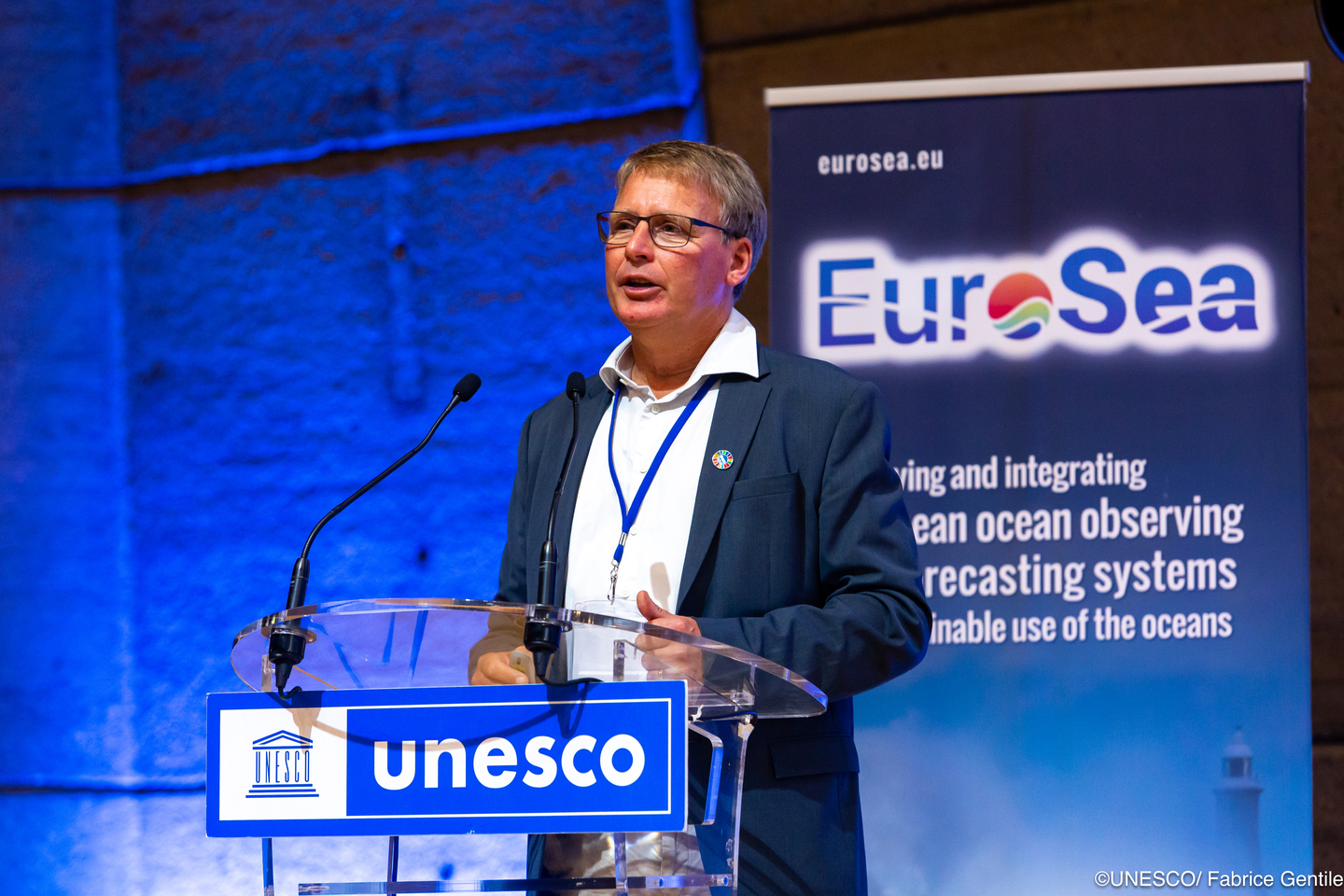Within the framework of the EU project EuroSea, 53 partners from 14 European countries as well as Brazil and Canada worked together to improve the European system for ocean observing and forecasting in a global context. In doing so, they provided an important basis for meeting the growing demand for information supporting social and political processes and decisions. About 200 stakeholders met in Paris for the plenary meeting (19-20 Sep ’23) and the final symposium (21 Sep ’23). GEOMAR Helmholtz Centre for Ocean Research Kiel led the project, which is funded by the European Union with 12.6 million euros from 2019 to 2023.

The ocean forms the basis of all life on our planet. It regulates the climate and provides food and oxygen. However, human-induced changes such as pollution, overfishing, warming and other factors are upsetting marine ecosystems. Understanding ocean and coastal processes is essential to maintaining ocean health and sustainable ocean management.
The EuroSea project, funded by the European Union with 12.6 million euros, has filled important knowledge gaps in these areas over the past four years and paved the way for an interdisciplinary and sustainable ocean observation and forecasting system. To this end, the most important European players in ocean observation and forecasting worked together with the users of oceanographic products and services. At the end of September ‘23, the stakeholders met for the General Assembly and a subsequent symposium at the headquarters of the Intergovernmental Oceanographic Commission (IOC) of the United Nations Educational, Scientific and Cultural Organization (UNESCO) in Paris.
Under the leadership of Dr Toste Tanhua, chemical oceanographer at GEOMAR Helmholtz Centre for Ocean Research Kiel and coordinator of EuroSea, the project brought together 53 partners from 14 European countries as well as Brazil and Canada. Participants included scientific institutions as well as private sector partners and international organisations and networks such as IOC-UNESCO, the European Marine Board and the European part of the Global Ocean Observing System (EuroGOOS).
The project partners have set the course for connecting existing ocean observation systems of individual European actors and making ocean data more accurate and accessible to all. For instance, actors of the Blue Economy – an environmentally sound economy based on the use of the oceans, including fisheries, ports, tourism and offshore energy production – and policy makers should be able to make better informed decisions based on the data. At the EuroSea General Assembly, the working groups of the ten individual, interlinked work packages shared their results.
The project has produced numerous innovations that improve ocean observing and forecasting at the European level, in a global context. Among other things, the partners developed a tool to be used by cities and their ports based on data from three test sites in Spain, Italy and Colombia, which provides real-time information and forecasts on waves, sea level, sea surface temperature, thus increasing safety in maritime operations. A system for aquaculture monitoring that uses sensors, unique buoys and advanced modelling capabilities to measure parameters such as oxygen, temperature and pH has also been created within the EuroSea project. It enables targeted predictions of extreme marine events such as marine heat waves and provides aquaculture operators with an early warning mechanism.
At the subsequent final symposium, national and international stakeholders from politics, science and industry were able to inform themselves about the current state of innovations in the field of European ocean observation and forecasting. In addition to addressing upcoming challenges, the discussion focused on recommendations for an effective, sustainable and interdisciplinary system.
In his closing statement, Dr Toste Tanhua highlighted the pioneering nature of the project and advocated for a continuation of the joint efforts at European level: “EuroSea has paved the way towards an interdisciplinary, sustainable ocean observing and forecasting system. We, the ocean experts and stakeholders, are committed to a concerted action to sustainably strengthen the European Ocean Observing and Forecasting System to meet the growing needs of European society and policy and to support the European Green Deal and the Ocean and Waters mission.”
The stakeholders want to build on the collaborations and relationships that have been established through the project. Parallel workshops of the Global Ocean Observing System (GOOS) and a meeting of the European national focal points for GOOS also took place in Paris. There, possibilities for follow-up projects were discussed and experiences exchanged. “We were able to pass on the knowledge we gained directly at the global level”, said Dr Toste Tanhua, who is also co-chair of GOOS.
Project funding:
The EuroSea project is a European Union innovation action funded with €12.6 million from 2019 to 2023 by the European Commission’s Horizon 2020 research and innovation funding programme as part of a call to support the G7 Future of Seas and Oceans initiative.
